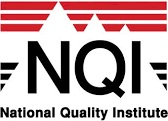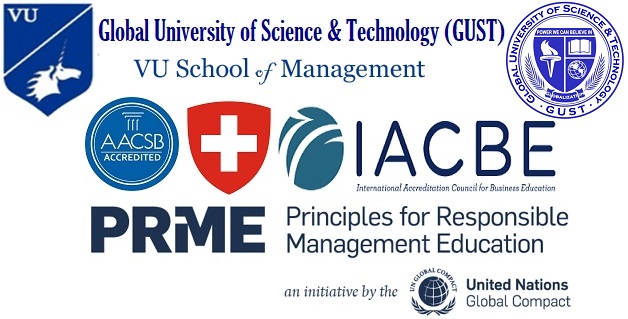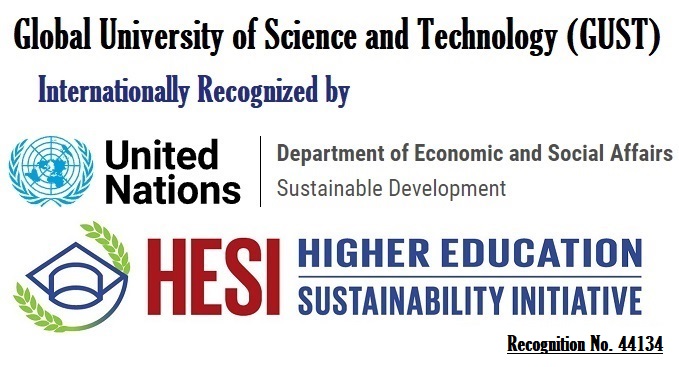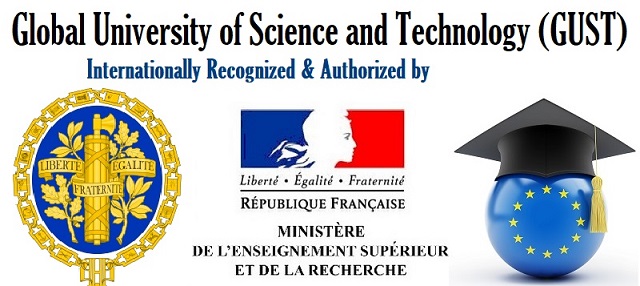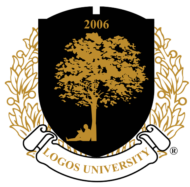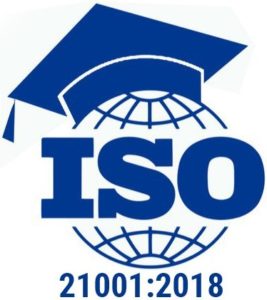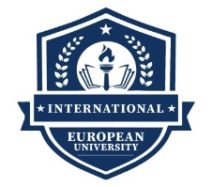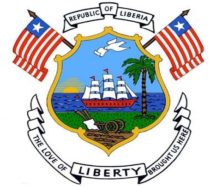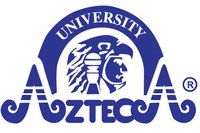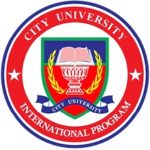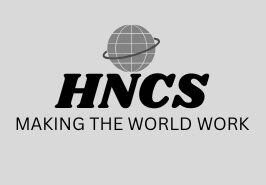HNCS Regular Doctorate Programs Where Global Academic Rigor Meets Real-World Impact In Academic Collaboration with Global University of Science and Technology (GUST)
HNCS, in academic collaboration with the Global University of Science and Technology (GUST), offers world-class Regular Doctorate programs designed for professionals, educators, researchers, and industry leaders who seek to make impactful contributions in their fields. These advanced doctoral degrees combine real-world relevance with global research standards, ensuring that candidates gain both academic rigor and practical insight.
The Doctorate in Sustainable Development is aligned with the United Nations Sustainable Development Goals (SDGs). This program is designed for professionals tackling pressing environmental, social, and economic challenges. It equips participants with interdisciplinary and transdisciplinary knowledge, critical research skills, and the ability to drive policy and community-level change. Delivered online, on-campus, or through a blended format, this doctorate spans 2–3 years and includes four coursework modules followed by an independent research project. Graduates earn the title “Doctor” and contribute original work to sustainability science and global practice.
Learners develop a deep understanding of sustainable development at the frontier of knowledge, engage in data-driven research, and acquire multicultural, ethical leadership skills. Emphasis is placed on critical thinking, analytical skills, and the use of advanced research tools. The program encourages candidates to engage in real-world applications, integrating indigenous knowledge, cultural diversity, and innovation. Graduates are empowered to lead sustainability efforts locally and globally, with the capacity to influence future policy and practice.
Doctor of Business Administration
Overview
The Doctor of Business Administration (DBA) is a prestigious professional doctorate tailored for senior executives, entrepreneurs, consultants, and strategic thinkers. It bridges academic theory and business practice through high-impact applied research. Built on Outcome-Based Education, the DBA focuses on real-world problem-solving, decision-making, leadership, and innovation.
This doctoral program spans a duration of three years (six semesters). Candidates engage in core management foundations and advanced dual specializations—both functional and sectoral. Functional electives include areas such as Finance, HR Management, Marketing, Project Management, and IT, while sectoral pathways allow specialization in domains like Healthcare, International Business, Energy, Supply Chain, Social Impact, and more. The flexible credit system enables candidates to tailor their learning according to professional goals. The curriculum features two practical projects, a foreign language component to boost global competency, and continuous faculty mentorship throughout the research phase.
Each candidate receives direct academic guidance from Dr. Josephine Pathmarajah, an internationally recognized scholar and experienced doctoral supervisor, who provides personalized mentoring from the initial research proposal to the final thesis defense.
Curriculum
The DBA program offered through HNCS is built on the principles of Outcome-Based Education, emphasizing a student-centric and practical learning approach. The pedagogy integrates case studies, problem-solving, role-plays, simulations, and presentations to ensure a real-world, hands-on experience.
Program Structure:
The DBA spans four semesters:
Semesters 1 & 2: Core management foundations.
Semesters 3 & 4: Advanced training in functional and sectoral specializations.
The curriculum follows a flexible, choice-based credit system and includes dual Functional and Sectoral Specializations.
Functional Specializations (Electives):
Accounting & Finance
Human Resource Management
Marketing
Information Technology
Operations & Strategy
Supply Chain Management
Project Management
Sectoral Specializations:
Students choose one sector to gain in-depth industry knowledge and leadership skills in areas such as:
Accounting – Managerial accounting, decision-making, and governance
Energy Management – Global energy systems and risk analysis
Entrepreneurship – Innovation, funding, and start-up strategy
Finance – Valuation, CAPM, derivatives, and financial strategy
Global Supply Chain – Logistics, technology, and compliance
Healthcare Management – Health systems, economics, and policy
Homeland Security – Organizational security, terrorism studies, crisis planning
HR Management – Talent strategy, partnerships, and succession planning
Information Systems – Aligning tech with business strategy
International Business – Global trade, finance, and market leadership
Leadership – Leading change, decision-making, and strategic growth
Marketing – Branding, consumer behavior, global marketing
Project Management – Portfolio leadership and strategic execution
Social Impact Management – CSR, stakeholder relations, and ESG strategy
Technology Entrepreneurship – Innovation and tech-driven business growth
Self-Designed – Tailored learning aligned with personal goals
Program Highlights:
Two faculty-guided practical projects
Foreign language as a core subject to build global competency
Curriculum integrates both theory and real-world application
Doctorate by Published Work
The Doctorate by Published Work is a prestigious academic path designed for seasoned professionals, researchers, and academics who have already made significant contributions to their field through published work. Rather than undertaking new coursework or a traditional dissertation, candidates demonstrate doctoral-level achievement through a curated portfolio of 3–8 peer-reviewed publications accompanied by a 5,000–10,000-word reflective commentary.
This program formally recognizes intellectual impact and original research already disseminated in the public domain. It’s ideal for those with a strong academic or professional background who wish to consolidate and validate their contributions through a doctoral qualification.
Candidates benefit from structured academic guidance while enjoying the flexibility to pursue the program online, on-campus, or in a blended format. A viva voce (oral defense) is conducted upon submission, allowing the candidate to articulate the significance, coherence, and originality of their body of work.
The program can be completed in 1–2 years, with a minimum registration of 3–6 months depending on candidate status.
Mentor: Dr. Jessica Bennet
Class Timings:
Mon: 10 AM–11 AM
Wed: 10 AM–12 PM
Fri: 8 AM–9 AM
The curriculum centers on reflective academic writing, research contextualization, and preparation for the oral examination. While no traditional coursework is required, candidates are supported in preparing a detailed analytical commentary that bridges their publications with established academic expectations.
Program delivery is tailored to accommodate busy professionals. While research and writing are conducted independently, academic supervision and feedback ensure alignment with international doctoral standards. The process includes submission, internal review, academic advising, and a final viva evaluation.
Key features of the program include:
Recognition of existing published research
Flexible duration and study modes
No requirement for new coursework or dissertation
Academic mentorship and review support
Oral examination to validate research contribution
Prestigious doctoral title awarded upon successful completion
This pathway empowers researchers to gain a formal doctoral qualification by showcasing their lifetime work—without redundancy. Ideal for professionals seeking career elevation, academic recognition, or leadership roles, the Doctorate by Published Work delivers both academic credibility and global value.
Doctor of Sustainable Development
The Doctor of Sustainable Development is a forward-looking doctoral program built on the framework of the United Nations Sustainable Development Goals (UN SDGs). Designed for professionals and researchers committed to addressing global challenges, this program emphasizes transdisciplinary approaches to environmental, social, and economic sustainability.
This doctorate enables candidates to gain a deep understanding of complex sustainable development issues and apply that knowledge in professional and research settings. Candidates engage in significant independent research, supported by four advanced coursework modules and guided faculty mentorship, with a focus on local and global impact. The program cultivates leadership, innovation, and scholarly expertise in sustainability practices.
Candidates benefit from GUST’s strong research ecosystem and global collaborations, ensuring real-world application of knowledge. The university’s partnerships with industry, government, and community organizations strengthen the relevance and impact of each doctoral journey.
The program spans 2–3 years and includes flexible study modes (online, on-campus, or blended). It is delivered under the mentorship of Dr. Jessica Bennet, with scheduled academic engagement on Mon 10 AM–11 AM, Wed 10 AM–12 PM, and Fri 8 AM–9 AM.
The curriculum develops specialized research capabilities, critical thinking, and intercultural understanding. Students explore sustainable development theory and practice through locally embedded research projects, analytical frameworks, communication strategies, and advanced technical skills. A foreign language module enhances global readiness, while candidates are also expected to undertake original research contributing to both academic knowledge and societal transformation.
The program structure includes a research component constituting two-thirds of the degree and a series of targeted coursework modules. Candidates progress through research design, project implementation, and academic writing phases, culminating in the submission and defense of a doctoral thesis.
Key features include:
Integration of UN SDG principles
Emphasis on interdisciplinary and applied research
Four advanced coursework modules with project-based learning
Cross-sector relevance in fields such as energy, climate change, urban planning, and social equity
Dual focus on global systems and local sustainability solutions
Flexible credit-based structure with real-time faculty interaction
Supportive research mentorship and academic leadership
Outcome-based educational framework with measurable learning results
This doctorate equips graduates to become influential leaders and change-makers in sustainability across academia, public policy, business, and community sectors.
Doctor of Diplomacy and International Relations
The Doctor of Diplomacy and International Relations is a specialized professional doctorate designed for individuals seeking to advance their expertise in global affairs, foreign policy, and diplomatic practice. This program prepares leaders to navigate complex international systems, negotiate across cultures, and influence policy in a rapidly evolving geopolitical landscape.
Guided by Dr. Jessica Bennet, classes are held on Mondays (10 AM – 11 AM), Wednesdays (10 AM – 12 PM), and Fridays (8 AM – 9 AM). The program integrates advanced theoretical foundations with practical applications in global diplomacy and international relations, enabling professionals to develop strategies, address global challenges, and build influence on the world stage.
Ideal for diplomats, policy makers, NGO leaders, international business professionals, and academics, this doctorate provides critical insight into political science, international law, global economic relations, conflict resolution, and diplomatic negotiation. GUST’s research-driven, outcome-based education model ensures that students develop both the academic and real-world competencies necessary to drive sustainable change at local and international levels.
The curriculum includes both structured coursework and original research. Students engage in global policy analysis, regional studies, multilateral negotiation strategies, and cross-cultural diplomacy. With a minimum duration of 1–2 years, the program requires 45 credit hours, delivered through a combination of online and on-campus learning. Candidates are supported in producing impactful research, culminating in a thesis that addresses a significant issue in international relations.
Program highlights include:
A strong foundation in diplomacy, geopolitics, and international law
Case-based and experiential learning using real-world scenarios
Leadership development in multicultural and high-stakes environments
Research mentorship and guided publication opportunities
Flexible, global-classroom format with live and recorded sessions
Interdisciplinary learning with business, security, and environmental modules
Advanced coursework aligned with UN frameworks and global governance
Graduates of this program emerge as skilled negotiators, strategic thinkers, and policy influencers—ready to take on leadership roles in governments, international organizations, think tanks, and academia.
What you’ll learn in All Regular Doctorate Program
- Have a systematic and critical understanding of a substantial and complex body of knowledge at the frontier of sustainable development and of inter-disciplinary and trans-disciplinary roles and representations of sustainable development, and apply this knowledge to professional practice and research.
- Develop a range of analytical, creative, critical specialised research skills, integrate these cognitive and research skills and apply them to research in professional practice.
- Demonstrate specialized cognitive, technical and research skills relevant to sustainable development,; evaluate the relevance of information making valid judgements,; and synthesize information from a range of sources.
- Communicate in ways appropriate to audience and purpose and disseminate and promote new insights into sustainable development through appropriate channels.
- Use appropriate technologies appropriate to research and communicate the complexities of sustainable development.
- Develop a reflexive and adaptive approach to learning that is relevant for professional practice and research; adapt and/or implement successful learning strategies to continue to redefine existing knowledge and professional practice.
- Generate original knowledge and understanding pertaining to the global nature of sustainability and the relationship between global and local sustainability issues; develop, adapt and/or implement international good practice for sustainable development in professional practice.
- Respect indigenous and other cultures and their immediate relevance to sustainable development; understand the complexities and benefits multiculturalism and diversity brings to sustainable development; and critique culture as an integrated system of norms that affect sustainable development.
- Demonstrate autonomy, authoritative judgement, and responsibility as an expert and leading practitioner or scholar in sustainable development; work independently and in teams; demonstrate leadership, professional behavior and ethical practices.
Recognition & Accreditation



